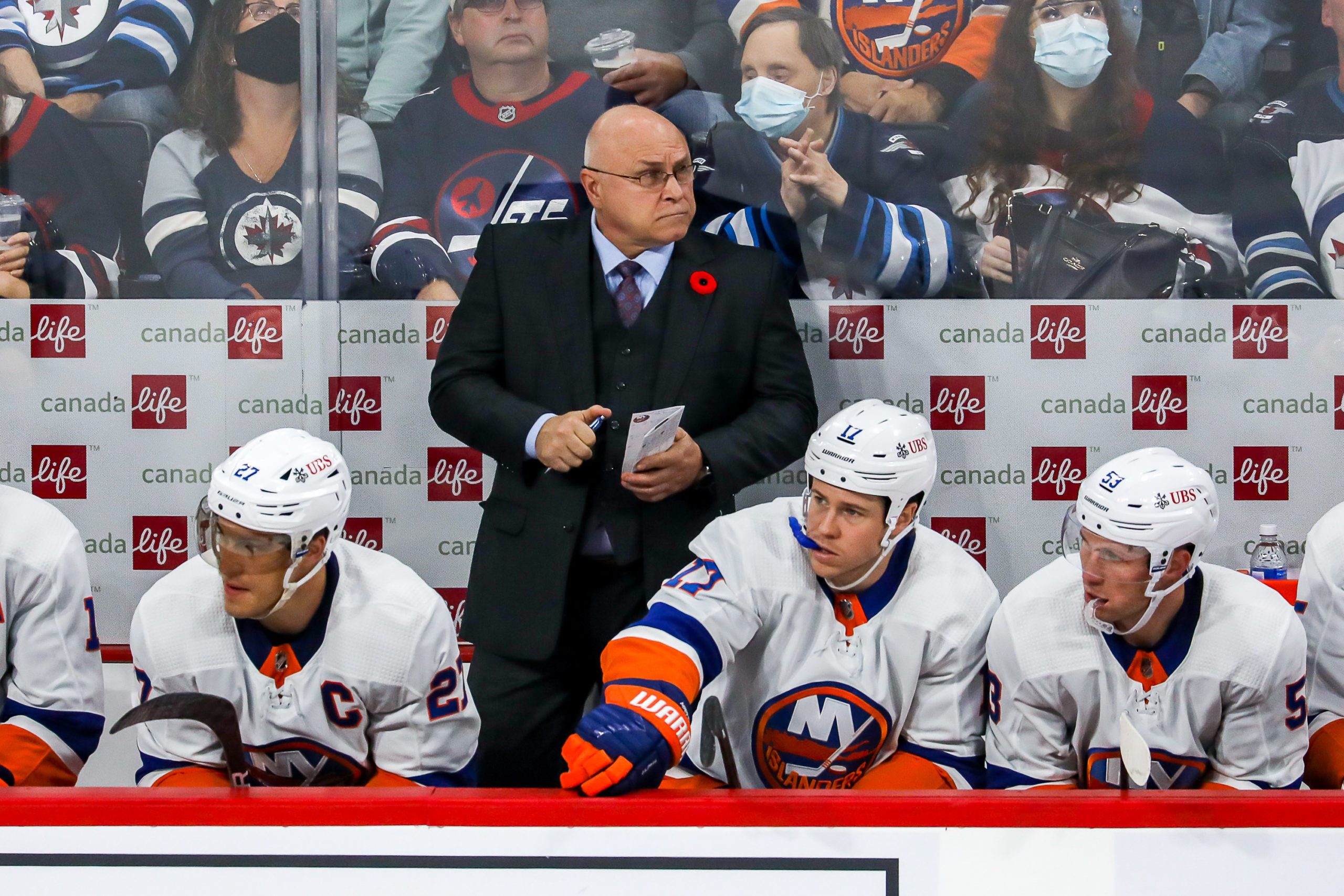New York Islanders
Rosner: Defense Not Enough in Full Season, Islanders Need Offense, Too

The New York Islanders enter their last three regular-season games riding a five-game losing streak. Over those five games, the Islanders have been outshot 171-136 and outscored 23-12. They have allowed 4.6 goals per game, scoring just 2.4.
The Islanders have played a lot of hockey in very few days, with the five-game losing streak coming over a span of eight days. Not to mention, four of the five previous opponents are playoff-bound, with each having over 100 points.
The battle against teams with 100 points continues on Tuesday night, as the Washington Capitals, the eighth seed and the Islanders opponent for the next two contests, sit with an even 100 points. No eighth seed has ever had 100 points to finish a season, per Islanders statistician Eric Hornick.
Three To Go, Gm 80: Lines, Previews & How to Watch vs. Capitals
The Islanders sit with 80 points.
If you look at the teams above the New York Islanders in the Eastern Conference, there’s another thing in common besides reaching the 100-point plateau.
Each team has averaged over 3.00 goals per game.
Florida Panthers-4.16
Toronto Maple Leafs-3.80
Tampa Bay Lightning-3.46
Washington Capitals-3.37
Carolina Hurricanes-3.34
Pittsburgh Penguins-3.29
Boston Bruins-3.06
New York Rangers-3.05
The Islanders have averaged 2.73 goals per game, ranking 25th out of 32 teams.
Now, it’s no secret that the New York Islanders have succeeded over the last few seasons due to their defensive system. Even in a year in which everything has gone south, the Islanders have allowed the eighth-fewest goals against in the NHL at 2.83.
That does not mean the Islanders defense is eighth-best.
But the problem is that five of the eight teams above have a lower goals-against per game than the Islanders.
So what does this mean?
It means that reliance on defense alone is not enough to survive an 82-game regular season.
Over the previous two seasons, the Islanders have allowed the second-fewest goals (315) and second-fewest goals-against per game (2.54) in the NHL. The Islanders, over that span, had scored the 10th fewest goals in the NHL (341) and the 11th fewest goals-for per game (2.75).
And the previous two seasons, the Islanders have found ways to make the postseason, with external factors also playing a part.
Following the 2019-20 season, the Islanders finished 7th out of 12 postseason teams due to point percentage (.588) and the postseason expansion due to COVID-19. They had a record of 35-23-10 (68 GP), with 2.73 goals per game (10th fewest) and 2.79 goals-against per game (9th fewest).
In 2020-21, which was just the 2021 season, given the season starting in January, the Islanders finished in the final playoff spot in the Mass Mutual East Division, with the league reconfiguring their divisions due to COVID, as each team only played inside their division.
The Islanders were 32-17-7 (56 GP) with a 2.71 goals per game (11th fewest) and 2.23 goals against per game (2nd fewest).
It’s fair to say the New York Islanders defense has not been as elite as it previously has been under Barry Trotz. The loss of Nick Leddy and the inability to bring in someone of his skill set have played a factor. Zdeno Chara struggled early on, which led to the separation of one of the elite shutdown defensive pairings in the NHL in Adam Pelech and Ryan Pulock.
And then Ryan Pulock fell victim to a lower-body injury. Although Noah Dobson stepped up and evolved as an NHL defenseman with more minutes and an increase in his role, Pulock’s loss still was a vital reason this season is ending on Friday.
Andy Greene has shown his age, and when the Islanders started to turn things around in March, Scott Mayfield fell victim to injury.
While the defense struggled, particularly against the tougher opponents, the lack of a potent offense made it challenging to win games and win close games. The Islanders are 8-9-0 in one-goal games.
And the increased reliance on the system, when the system was missing a rather critical asset, made it impossible to have continued success unless the offense stepped it up–which they did not.
That’s not to blame Barry Trotz, as his offense is not highly touted. Given the need for production, the constant shake-up of his lines and especially his young players like Wahlstrom has been a concern.
There are weapons, as we have seen with the career year by Brock Nelson and a strong season by Anders Lee, and of course, having Mathew Barzal on the roster. But with the inconsistencies of many forwards, Trotz decided to shake up lines, and with the starts and stops this season provided, a streaky offense––let’s call it as it is––never got hot until it was too late in the season.
The defensive system works once postseason play begins. Still, given the regular-season game being an offensive one, general manager Lou Lamoriello needs to focus on improving that part of the Islanders game.
That’s not a secret.
It was evident throughout the last two playoff runs. Still, general manager Lou Lamoriello believed that his team would be back in the postseason with his defense, goaltending, and the pieces he brought in on offense.
The game plan did not work for a majority of reasons, largely due to lackluster performances by many players this season, particularly on the offense. Yes, COVID-19, injuries, and the abundance of games in the short number of days played a part.
Those are not excuses, just merely facts.
The Islanders leading point-getter this season through 79 games played is Brock Nelson, who has 58 points in 70 games due to injury and COVID-19. He sits 82nd in the NHL in points. The next highest point-getter on the Islanders is Mathew Barzal, who has 54 points in 70 games and ranks 100th in the NHL.
Lamoriello, who made no moves at the trade deadline, stated that he believed in the core of his team and that the rest of the season would be used to evaluate the offense.
And while some players, like Kyle Palmieri, like Jean-Gabriel Pageau, and Zach Parise, have produced more in the second half than they did in the first, the need for an elite forward is not just a want.
It’s a need if the New York Islanders want to be able to compete with the offensive teams that prowl the Metropolitan Division. But what also is a necessity is secondary support, depth support as one player may help add a few more goals to the total, but it’s a team game where each line needs to find ways to be successful.
Making a tweak on the back end to provide more stability will be needed as well, but the focal point needs to be on the offensive side of the puck to give the New York Islanders a chance to compete in what is an offensive-based regular season, especially in a powerhouse division like the Metropolitan.



















